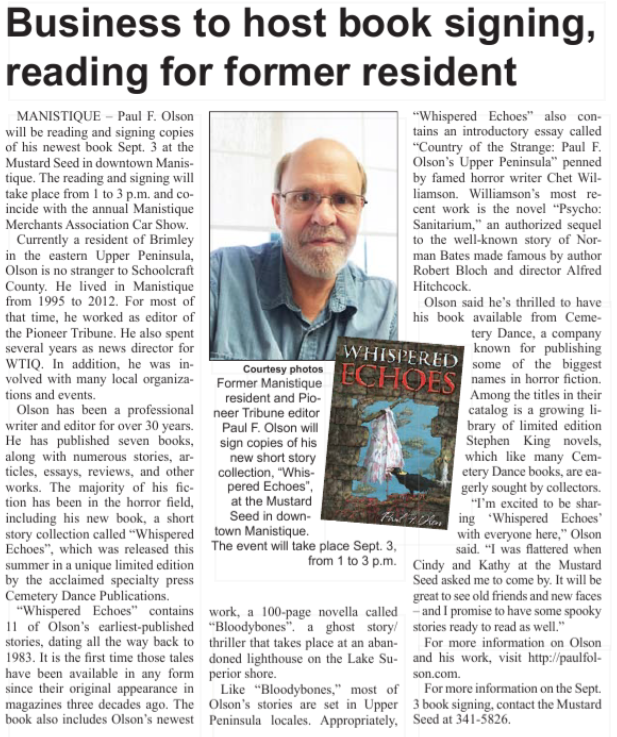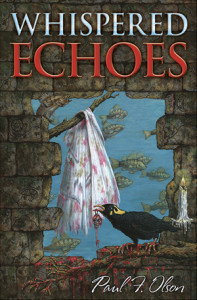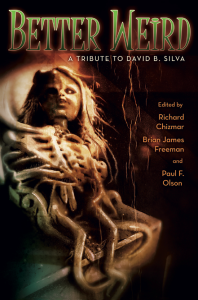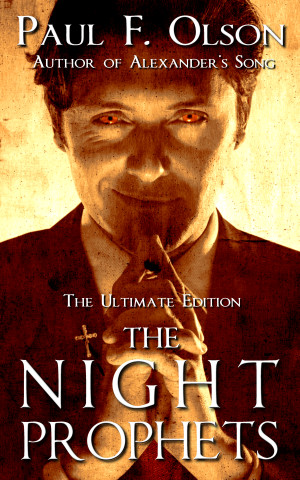It’s almost impossible to comprehend the fact that ten years have gone by since the death of Charles L. Grant. There has not been a single day of that entire decade that I haven’t thought about Charlie in some way. Whether I was re-reading his work or merely thinking about his legacy, he has never been far from my mind. I suspect that’s true for everyone who knew him and loved his work. Ten years? That’s a long time, but not nearly long enough to dim his memory or diminish his impact. The giant footsteps he left behind for the rest of us to follow will be there forever.
As I thought about what I could contribute to Neil Snowden’s Charles L. Grant Blogathon, I found myself wanting to explain how I felt about Charlie, what he meant to me. Then I realized I had already done that, in a post on an old website of mine, way back in September 2006. Unlike most things in cyberspace, which live forever whether we want them to or not, this particular post had long since vanished, the victim of a crash that wiped out that website and all its contents. For most of the things lost that day, I can honestly say, “No big deal.” But my post about Charlie, written when the shock and pain of his death was still fresh and raw, deserves a second chance. It expresses what I felt back then, what I still feel today, and it does so honestly and directly. This is the perfect time to bring it back.
REMEMBERING CHARLES L. GRANT
It’s been a week since the death of Charles L. Grant, and I can’t shake the feeling — that hollow, floating feeling in the pit of my stomach. This is what it feels like when one of your heroes dies.
Over the years, I only had a few chances to work with Charlie. He was a supporter of my old magazine, Horrorstruck. He provided a pair of terrific tales for Post Mortem and Dead End: City Limits. He offered gentle, thoughtful, and constructive rejections every time I tried to sell him something. (He also was generous about suggesting alternative markets for a particular story, which shows just what kind of editor he was, although I probably didn’t appreciate it enough at the time. I didn’t want to see my work in this anthology or that magazine. I wanted to reach my own personal holy grail. I wanted to be good enough to have a story in Shadows, dammit.)
As you can see, Charlie and I weren’t exactly “colleagues.” More like ships that kept passing in the night, often within sighting distance, occasionally within hailing distance. But I still felt closer to him than almost anyone else in the field, simply because I idolized him so much.
When I attended my first World Fantasy Convention (WFC 5, Providence, 1979), I was only marginally familiar with Charlie’s work, but that all changed over the course of that magic weekend. After watching him on several panels, chatting briefly with him during the autograph party, and gobbling down part of a novel and several short stories … well, let’s just say that by the time I left the east coast and flew back to Michigan, I had a new role model. I spent the next several weeks immersed in the work of Charles L. Grant and never looked back.
It was a pivotal time in the life of a young writer who was just then taking the first tentative steps toward a career, and Charlie became a brilliant signpost on that winding, mysterious path.
He was the kind of writer I wanted to be — not insanely, stratospherically successful, but someone who earned a living with his craft, who seemed to find real joy in doing the work, who always took that work seriously, who understood the field and truly believed in it, who saw value in the genre and eloquently expressed his feelings about it, who charted his own course in defiance of trends, who switched back and forth from writer to editor with apparent ease, who was helpful and kind and generous, and who, along the way, earned the sincere respect of his peers. Wow, I thought. If I could do all of that, I would be a happy man indeed.
Did I achieve the goal? No. But as I’ve told a few other people this week, I only missed the mark because what I wanted to achieve was nearly impossible. Charlie had set a standard that was simply too high to reach.
I don’t know how much longer I’ll feel this sensation of loss, this little black hole in my spirit, this … this emptiness. A long time, I’m sure. Perhaps forever. That’s what happens when a piece of you suddenly goes away, when the signpost you relied on vanishes.
I’m grateful, of course, that I still have Charlie in my library, three or four long shelves worth of Charlie, dozens and dozens of books to touch, take down, reread, marvel over, and reread again. But right now, that seems like cold, thin comfort. It’s not enough, not nearly enough.
This is what it feels like when one of your heroes dies.






